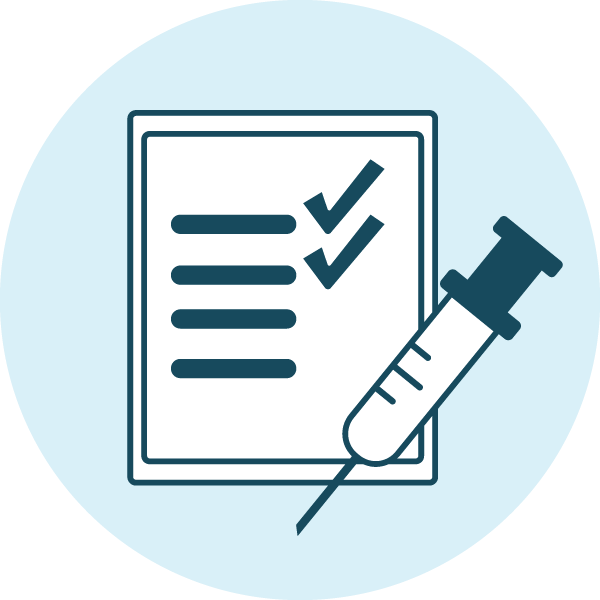In addition to having your basic survival supplies, an emergency kit should have items to meet your individual needs in various emergencies. Depending on your specific needs or the needs of a family member consider adding the following to your emergency kit:
Medical Supplies
- Extra eyeglasses and/or hearing aids
- Battery chargers and extra batteries for hearing aids or other battery-operated medical or assistive devices
- Small generator if needed to power medical or assistive devices
- Extra medication, and over the counter medicine, oxygen, insulin, catheters, or other medical equipment you or a family member uses regularly (contact your medical provider to get extra medication for your kit)
- Medical alert tags or bracelets

Documents
- Copies of medical insurance cards and Medicare/Medicaid cards
Detailed list of your prescriptions, the name of the medication, and the dosage - List of your doctors’ names, specialty, and phone number
- List of allergies and medical history or information
- Written descriptions of your support needs in case you are unable to describe the situation in an emergency
- Important family documents such as copies of insurance policies, wills or family trusts, financial records including bank account records stored in a waterproof portable container
- If possible, save these records electronically on a flash drive
- Take pictures of the important documents with your phone to use if needed
- Include family photos in your emergency kit

Service Animals
- Food, water, and bowls to put them in
- Your animal’s medication, if needed
- Veterinarian contact information
- Collar with ID tags and a leash
- A picture of you and your animal
- Dog waste bags, pee pads or any other sanitation needs for your animal
- Toys and treats
- Booties in case of broken glass or debris, if your animal will wear them

Salt Lake City Emergency Management Resources
Haga clic aquí para obtener más información sobre la administración de emergencias en Salt Lake City.
Haga clic aquí para consultar la Guía paso a paso del kit de emergencia de 96 horas de Salt Lake City.
Si tiene otras preguntas, comuníquese con:
Administración de Emergencias de Salt Lake City
Casey Carter, coordinador de la oficina
[email protected] | (801) 799-3600